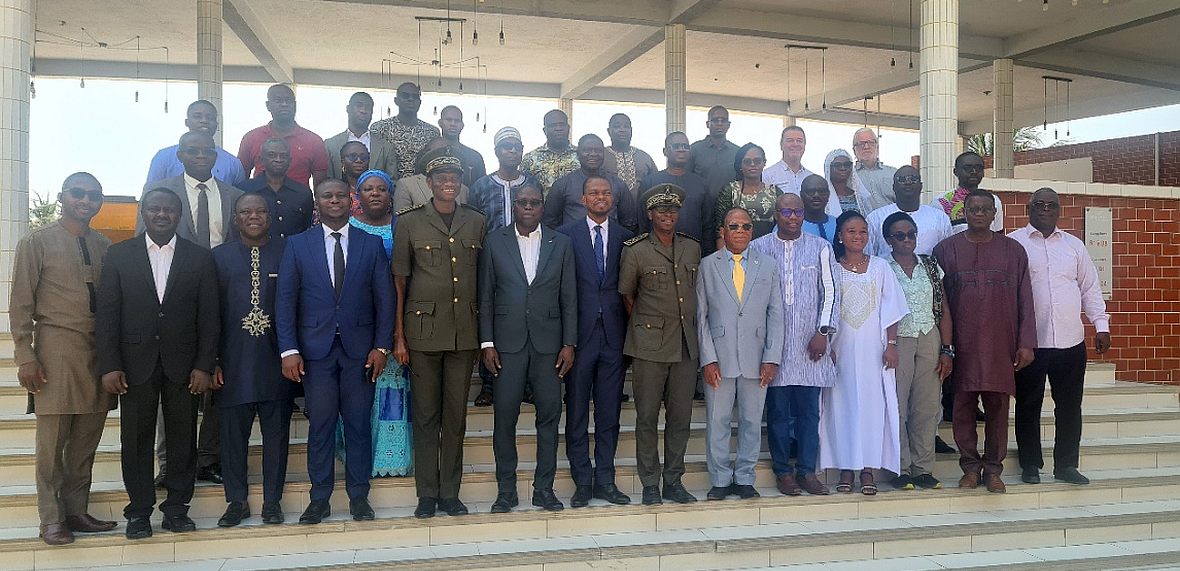The Mono river is approximately 530 km long and covers a basin of 24,300 km², of which 3,000 km² is in Benin and 21,300 km² in Togo. The Mono is a vital resource for biodiversity and local socio-economic activities for the basin's 4 million inhabitants. However, the basin is facing multiple pressures: ecosystem degradation, water pollution from pesticides, domestic waste and mining activities, and growing demand for natural resources from a rapidly expanding population.
It is in response to these many challenges that the ‘Regional Initiative for Water and the Environment in the Transboundary Mono River Basin’ (RIWE-Mono) project is designed to address the urgent need for integrated and coordinated management of the resources of the Mono river basin, combining conservation, sustainable development and local capacity building to ensure ecological resilience and sustainable livelihoods in the basin.
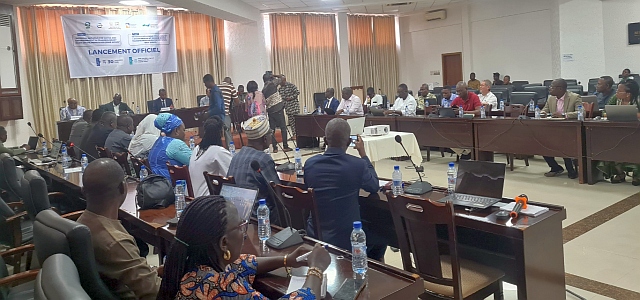 The project is financed by the Global Environment Facility (GEF) through IUCN as Implementing Entity for a total budget of USD 5,000,000 for an implementation period of 48 months. The Mono Basin Authority is the lead implementing agency for the project at regional level, with the support of the Sahara and Sahel Observatory (OSS) and the Global Water Partnership in West Africa (GWP-WA) as co-implementing agencies.
The project is financed by the Global Environment Facility (GEF) through IUCN as Implementing Entity for a total budget of USD 5,000,000 for an implementation period of 48 months. The Mono Basin Authority is the lead implementing agency for the project at regional level, with the support of the Sahara and Sahel Observatory (OSS) and the Global Water Partnership in West Africa (GWP-WA) as co-implementing agencies.
The IREE project has three (03) components. Component 1 concerns the assessment and planning of water resources as well as the ecological and economic development of the Mono River Basin and focuses on the production of a Transboundary Diagnostic Analysis (TDA) and a Strategic Action Plan (SAP), accompanied by an investment plan. Component 2 focuses on institutional and technical capacity building aimed at structuring and developing the capacities of the MBA and local stakeholders, including the Local Water Committees (CLE). Component 3 focuses on knowledge management, monitoring and evaluation, and communication, with the emphasis on setting up information-sharing and awareness-raising mechanisms to improve cooperation and decision-making.
Meeting the challenges of sustainable development in the basin
The official launch of the RIWE-Mono project took place on 29 January 2025, under the patronage of the Minister for Water and Mines of the Republic of Benin and the Minister for Water and Sanitation of Togo, in the presence of partners from the implementing agency, the International Union for Conservation of Nature (IUCN), and the executing agencies, the Mono Basin Authority (MBA), the Sahara and Sahel Observatory (SSO) and the Global Water Partnership for West Africa (GWP-WA). The event took place in Grand Popo, Benin, following the first meeting of the project's Steering Committee, held on 27 and 28 January 2025.
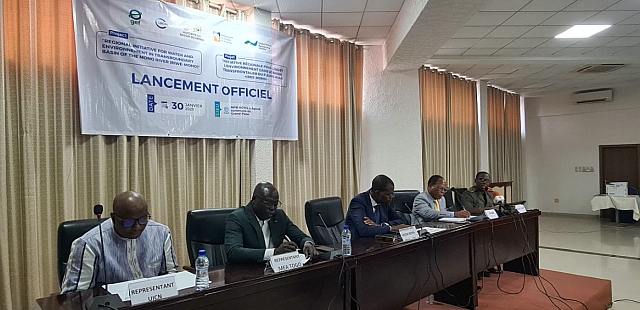 ‘The development of bankable projects to benefit the basin and the populations of both countries is a noble concern. This is the background to the ‘Regional Initiative for Water and the Environment in the Mono River Transboundary Basin’ (RIWE-Mono) project,’ said the representative of Benin's Minister of Energy, Water and Mines in his opening speech. He thanked the GEF for funding this initiative and all those who have contributed to the development of this important project for the well-being of the people, in particular the International Union for Conservation of Nature (IUCN), the Sahara and Sahel Observatory (OSS) and the Global Water Partnership in West Africa (GWP-WA).
‘The development of bankable projects to benefit the basin and the populations of both countries is a noble concern. This is the background to the ‘Regional Initiative for Water and the Environment in the Mono River Transboundary Basin’ (RIWE-Mono) project,’ said the representative of Benin's Minister of Energy, Water and Mines in his opening speech. He thanked the GEF for funding this initiative and all those who have contributed to the development of this important project for the well-being of the people, in particular the International Union for Conservation of Nature (IUCN), the Sahara and Sahel Observatory (OSS) and the Global Water Partnership in West Africa (GWP-WA).
For MBA's Executive Director, Nicolas D. GNAKPAOU, "the project is the first large-scale initiative with partners aimed at transforming the destiny of the people of the Mono basin. The MBA Executive Direction will continue to work for the well-being of the people of the basin’, he added.
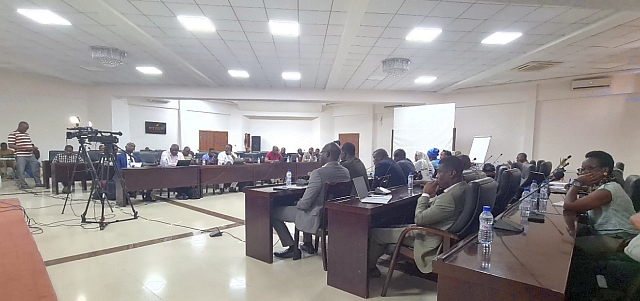 RIWE-Mono should help to ensure the sustainable development and ecological resilience of the Mono river basin. This will be achieved by strengthening governance, capacity building and participatory planning of Integrated Water Resources Management (IWRM) by communities, as well as by strengthening cooperation between Togo and Benin.
RIWE-Mono should help to ensure the sustainable development and ecological resilience of the Mono river basin. This will be achieved by strengthening governance, capacity building and participatory planning of Integrated Water Resources Management (IWRM) by communities, as well as by strengthening cooperation between Togo and Benin.
The representative of the Regional Director of IUCN-PACO, Mr Sanon Arsène Alain, reassured the audience that ‘IUCN, in its role and mandate as implementing agency, will ensure the quality of implementation of the RIWE-Mono project, the achievement of the objectives set and the synergy of actions with sectoral policies and technical partners present in the Mono basin’.
For Mr Mohamedou SY, Director of the Water Department at the Sahara and Sahel Observatory - OSS, the IREE-Mono project, involving two West African countries, represents a strategic opportunity for the OSS to enhance knowledge of transboundary basins and promote cooperation on water resources, both underground and surface. By adding to the experience gained in North Africa with the North Sahara Aquifer System (SASS) and in West Africa with the Iullemeden Aquifer System, this project consolidates the Organisation's role as a key player in the integrated and concerted management of water resources on a continental scale.
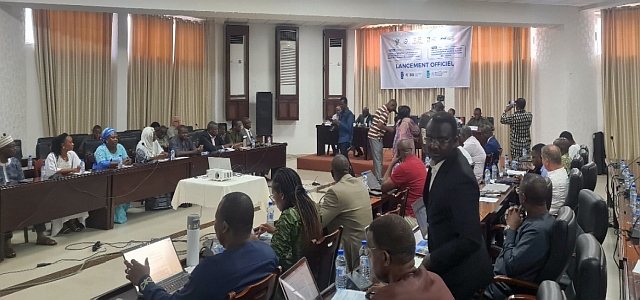 The implementation of pilot initiatives for the protection of ecosystems, economic development and the adaptation of populations to climate change must constitute high points for directly impacting the lives of communities living along the basin. The implementing agencies will also ensure that the capacities of local institutions and cross-border governance mechanisms are strengthened to enable integrated and concerted management of the basin's natural resources. This led Mr K. Armand HOUANYE, Executive Secretary of GWP- WA, to say that "this approach, which aims to improve people's living conditions through concrete actions, is what GWP is promoting. As an implementing agency, GWP- WA will play its full part in supporting the MBA and the countries in the sustainable management of the basin's natural resources for the benefit of all riparian populations".
The implementation of pilot initiatives for the protection of ecosystems, economic development and the adaptation of populations to climate change must constitute high points for directly impacting the lives of communities living along the basin. The implementing agencies will also ensure that the capacities of local institutions and cross-border governance mechanisms are strengthened to enable integrated and concerted management of the basin's natural resources. This led Mr K. Armand HOUANYE, Executive Secretary of GWP- WA, to say that "this approach, which aims to improve people's living conditions through concrete actions, is what GWP is promoting. As an implementing agency, GWP- WA will play its full part in supporting the MBA and the countries in the sustainable management of the basin's natural resources for the benefit of all riparian populations".
